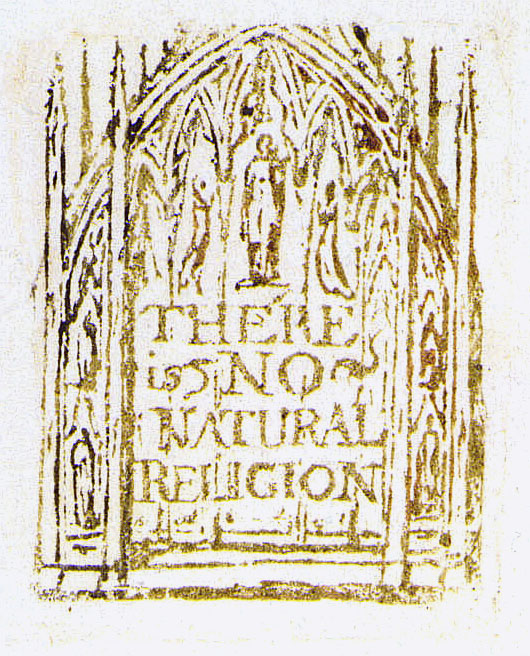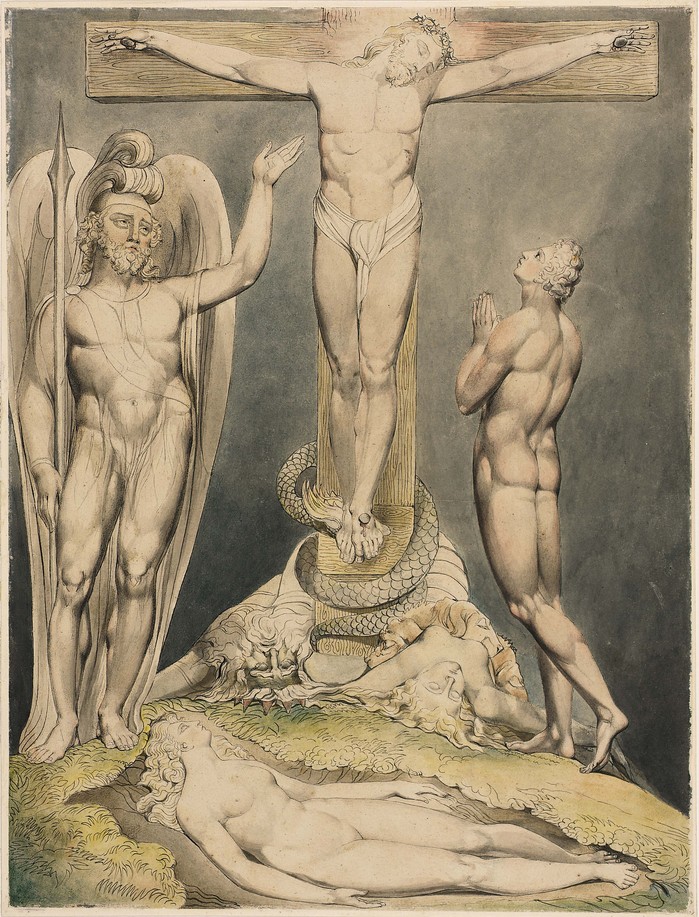
Los, as the Vehicular Form of the
Eternal Urthona, is his
representative in our world - the world of generation. Blake chose
poetry as one of his media to express his message because it is
adept at conveying spiritual content which is offered by Urthona
the Zoa of Imagination. Damon (A Blake Dictionary) tells us that "Los is
Poetry, the expression in this world of the Creative Imagination."
The sense associated with Urthona is hearing which is discerned through the
'labyrinthine Ear.' Poetry is a special kind of sound designed to
transmit through sound more than can be discerned in ordinary speech,
just as music conveys more than the cacophony of a crowded marketplace.
From Defending Ancient Springs by Kathleen Raine:
Page 107
"There is one type of resonance which he [William Empson] fails to
consider, that resonance which may be present within a image of apparent
simplicity, setting into vibration planes of reality and of
consciousness other than those of the sensible world: the power of the
symbol and of symbolic discourse...
Page 108
"It is in this that the poet distinguishes himself from the
philosopher; not in any difference in the nature of their themes but in
their way of experiencing them: where philosophy makes distinctions,
poetry brings together, creating always wholes and harmonies; the work
of the poet is not analysis but synthesis, The symbol may be called the
unit of poetic synthesis; as Coleridge in his famous definition implies:
'A symbol is characterized by a translucence of the special in the
Individual, or of the General in the Especial, or of the Universal in the
General. Above all of the translucence of the Eternal through and in the
Temporal. It always partakes of the Reality which it renders
intelligible; and while it enunciates the whole, abides itself as a
living part of that Unity of which it is representative...
What the poem affirms is that the world is, in its whole and in its
parts, living and conscious; it also affirms that there is a hidden
source ('heaven') from whose 'gate' visible things issue from
invisible.'"
Marriage of Heaven & Hell, Plate 5, (E 34)
" 1 Man has no Body distinct from his Soul for that calld Body is
a portion of Soul discernd by the five Senses. the chief inlets
of Soul in this age"
Jerusalem, Plate 98, (E 257)
"According to the Human Nerves of Sensation, the Four Rivers of the Water of Life
South stood the Nerves of the Eye. East in Rivers of bliss the Nerves of the
Expansive Nostrils West, flowd the Parent Sense the Tongue. North stood
The labyrinthine Ear."
Four Zoas Night I, Page 3, (E 201)
"Los was the fourth immortal starry one, & in the Earth
Of a bright Universe Empery attended day & night
Days & nights of revolving joy, Urthona was his name
Page 4
In Eden; in the Auricular Nerves of Human life
Which is the Earth of Eden, he his Emanations propagated
Fairies of Albion afterwards Gods of the Heathen, Daughter of Beulah Sing
His fall into Division & his Resurrection to Unity
His fall into the Generation of Decay & Death & his Regeneration
by the Resurrection from the dead"
Europe, Plate iii, (E 60)
"Five windows light the cavern'd Man; thro' one he breathes the air;
Thro' one, hears music of the spheres; thro' one, the eternal vine
Flourishes, that he may recieve the grapes; thro' one can look.
And see small portions of the eternal world that ever groweth;
Thro' one, himself pass out what time he please, but he will not;
For stolen joys are sweet, & bread eaten in secret pleasant."
Jerusalem, Plate 83, (E 241)
"Let Cambel and her Sisters sit within the Mundane Shell:
Forming the fluctuating Globe according to their will,
According as they weave the little embryon nerves & veins
The Eye, the little Nostrils, & the delicate Tongue & Ears
Of labyrinthine intricacy: so shall they fold the World
That whatever is seen upon the Mundane Shell, the same
Be seen upon the Fluctuating Earth woven by the Sisters."
Jerusalem, Plate 53, (E 202)
"But Los, who is the Vehicular Form of strong Urthona"
Jerusalem, Plate 3, (E 146)
"I therefore have produced
a variety in every line, both of cadences & number of syllables.
Every word and every letter is studied and put into its fit
place: the terrific numbers are reserved for the terrific
parts--the mild & gentle, for the mild & gentle parts, and the
prosaic, for inferior parts: all are necessary to each other.
Poetry Fetter'd, Fetters the Human Race! Nations are Destroy'd,
or Flourish, in proportion as Their Poetry Painting and Music,
are Destroy'd or Flourish! The Primeval State of Man, was Wisdom,
Art, and Science."
On Homer's Poetry, (E 269)
"It is the same with the Moral of a whole Poem as with the Moral Goodness
of its parts Unity & Morality, are secondary considerations &
belong to Philosophy & not to Poetry, to Exception & not to Rule,
to Accident & not to Substance. the Ancients calld it eating of
the tree of good & evil."
Descriptive Catalogue, (E 541)
"Painting, as well as poetry and music, exists and exults
in immortal thoughts."
Vision of Last Judgment, (E 554)
"Fable or Allegory are a totally distinct & inferior
kind of Poetry. Vision or Imagination is a Representation of
what Eternally Exists. Really & Unchangeably. Fable or Allegory
is Formd by the Daughters of Memory. Imagination is Surrounded
by the daughters of Inspiration who in the aggregate are calld
Jerusalem"
Vision of Last Judgment, (E 559)
"Noah is seen in the Midst of these Canopied by a
Rainbow. on his right hand Shem & on his Left Japhet these three
Persons represent Poetry Painting & Music the three Powers in
Man of conversing with Paradise which the flood did not Sweep
away"
Letters, (E 730)
"Thus I hope that all our three years trouble Ends in
Good Luck at last & shall be forgot by my affections & only
rememberd by my Understanding to be a Memento in time to come &
to speak to future generations by a Sublime Allegory which is now
perfectly completed into a Grand Poem[.] I may praise it since I
dare not pretend to be any other than the Secretary the Authors
are in Eternity I consider it as the Grandest Poem that This
World Contains. Allegory addressd to the Intellectual powers
while it is altogether hidden from the Corporeal Understanding is
My Definition of the Most Sublime Poetry. it is also somewhat in
the same manner defind by Plato. This Poem shall by Divine
Assistance be progressively Printed & Ornamented with Prints &
given to the Public--But of this work I take care to say little
to Mr H. since he is as much averse to my poetry as he is to a
Chapter in the Bible He knows that I have writ it for I have
shewn it to him & he had read Part by his own desire & has lookd
with sufficient contempt to enhance my opinion of it."







